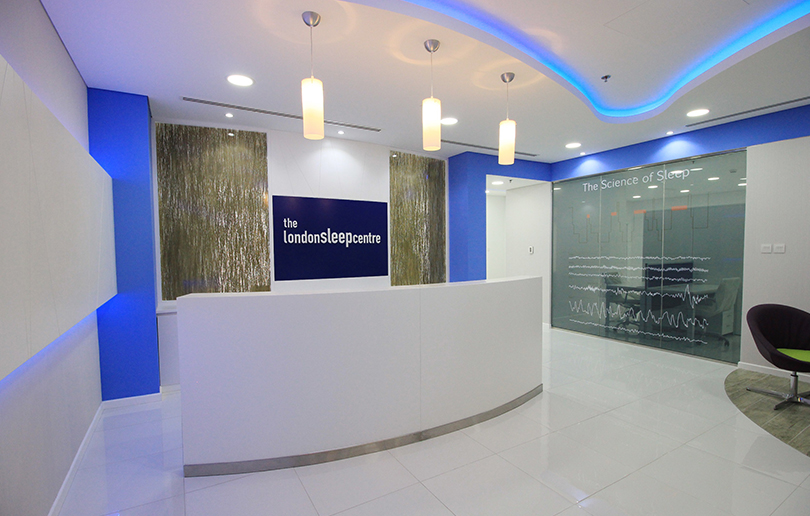Sleep During Ramadan
“Give your body the sleep it needs even during Ramadan. Alter sleep patterns to ensure healthy and safe fasting” – The London Sleep Centre, Dubai.
In an attempt to bring about awareness on the effects that fasting can have on sleep during the holy month of Ramadan and the importance of regulated sleeping patterns while at it; The London Sleep Centre in Dubai released tips on sleep techniques for everyone who will be fasting.
As Ramadan approaches, many will embark on a spiritual journey and inculcate compassion, sacrifice and virtues of giving, within themselves. However, it is essential to remember that the body system is used to a particular routine and fasting brings in sudden changes to the sleep patterns and diet that could potentially have huge health and social impacts. It has been observed and reported that 3 hours prior to Iftar are the most dangerous on UAE roads, as lack of food, nicotine and sleep causes people to drive erratically and with a lack of concentration. Hunger and sleep deprivation are well known to cause irritability and anger which can impact on social situations.
With regards to sleep habits, Dr. Irshaad Ebrahim (Medical Director and Sleep Physician at The London Sleep Centre) proposes some helpful tips to ensure control over sleep deprivation.

- Avoid heavy, sugary and rich foods at Iftar
Loading your plate with calories will significantly disrupt the quality of your sleep–a heavy meal means that the body will be trying to digest whilst it needs to be sleeping and resting. Try and stick to a healthy balance of protein, fruit and vegetables, avoiding processed sugar and carbohydrates (pasta, white bread, biscuits, cake) as much as possible – or have in small amounts.
- Get the same amount of sleep
Try to ensure that you get the same amount of sleep over the 24 hour period. Usually most people would sleep during the night for 7-8 hours in one block, but during Ramadan this is not possible, however try and ensure that you make up for the lost night time sleep. Take time to make a plan which you stick to as best as possible during the holy month. This may involve going to bed earlier than normal. For example, try to go to bed by 11pm and have 4 hours following Iftar, wake up at 3.30am ready for Suhoor and Fajr and return back to sleep at around 5am for 2 hours. If you are working reduced hours then this sleep can be a little longer. If not then a nap after work before IFTAR can make up for the last 1-2 hours of lost sleep. This new routine may mean sacrificing or reducing time spent socializing or on leisure activities, but your body will thank you for a new routine ensuring enough sleep. Sleep deprivation also affects hormones in the body which control appetite. When sleep deprived your appetite increases, to make fasting even more difficult.
- Power Naps
If your energy levels are low during the working day, a power nap can be helpful. Find a quiet place away from the work station such as your car, and take a 20 minute nap. Set an alarm to ensure you do no oversleep. Try not to sleep for longer than 20 minutes during this daytime nap as your body will go into deep sleep and you will wake from this feeling tired and groggy.
The London Sleep Centre concluded that, sleep is required to maintain health and psychophysiological functioning. It is tightly linked to daytime functioning. Ramadan, which involves month-long of intermittent fasting during daylight hours, is associated with alterations in sleeping patterns. Eating and drinking along with social and physical activities are delayed into the night which promotes a delay in bedtime, reductions in total sleep time and sleep quality during Ramadan. These changes, although not ubiquitous, have consequences on daytime functioning, including reduced alertness, mood disturbances, and increased exposure for injury.
So remember to follow the three golden rules of avoiding heavy foods, ensuring same amount of sleep as you were used to before Ramadan and taking up power naps in day time whenever possible; all of which will make you sail through a healthy Ramadan.
About The London Sleep Centre Dubai
Affiliated to UK based The London Sleep Centre on Harley Street; this Dubai division is the only fully integrated Sleep Diagnostic and Treatment facility in the GCC.
Located in Dubai Healthcare city, it provides comprehensive diagnostic and treatment services to tackle sleep disorders caused by sleep-related breathing and conditions like Neuro-Psychiatric, medical and dental. It is world’s first clinic to have an integrated Dental Sleep Medicine TMJ service as part of its treatment offerings.
Staffed by an International team of Sleep experts, the same as The London Sleep Centre on Harley Street; this state-of-art Sleep Clinic ensures expert care of clients with thorough assessment of disorders, accurate real time analysis and precise diagnosis whilst offering each of its clients a unique treatment plan.
The London Sleep Centre Dubai is headed by famed Specialist Consultant Neuropsychiatrist in Sleep Disorders; Dr. Irshaad Ebrahim who’s clinical interests covers the entire spectrum of sleep disorders including Insomnia, Behavioural Sleep Medicine, Parasomnias Narcolepsy and Obstructive Sleep Apnoea. With a commitment towards research and treatment for sleep disorders that spans over two decades, he has recently launched the Dubai division in the wake of rise in number of lifestyle related sleep disorders in the region.
Equipped with the most specialised Dental Sleep Medicine Team, the clinic has on board Dr. Steven Olmos, an internationally recognized lecturer and researcher, and the founder of the TMJ & Sleep Therapy Centre International. Having dedicated the past 26 years to the fields of Craniofacial Pain, TMD and Sleep Disordered Breathing, his ongoing efforts are focussed on establishing protocols between Dentistry and Sleep Medicine for optimal treatment outcomes in patients with Sleep Disordered Breathing including Sleep Apnoea.
For further information, please log on to www.londonsleepcentre.ae
For media enquiries, please contact Matrix Public Relations
Krishika Mahesh: Krishika@matrixdubai.com
Aser Ismail: Aser@matrixdubai.com
Phone: +9714 343 0888











Comments